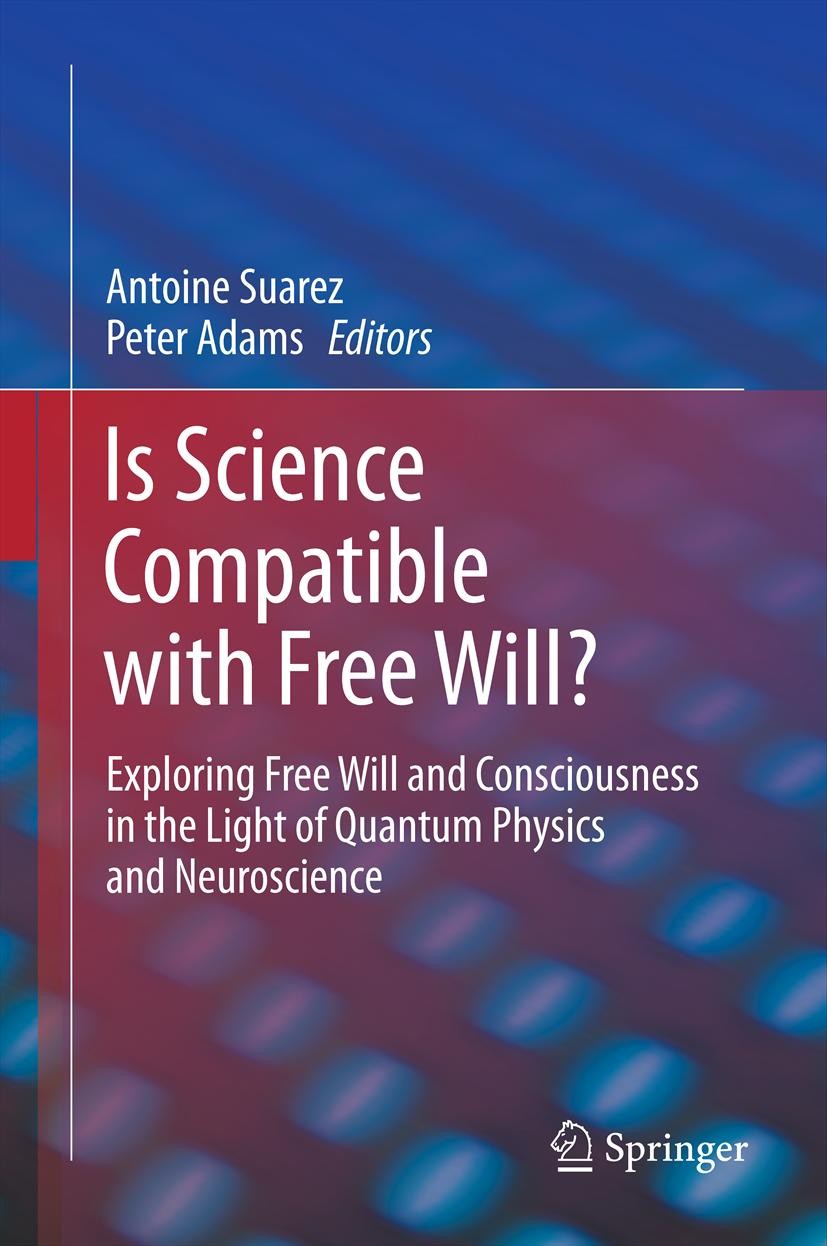| 书目名称 | Is Science Compatible with Free Will? | | 副标题 | Exploring Free Will | | 编辑 | Antoine Suarez,Peter Adams | | 视频video | http://file.papertrans.cn/476/475499/475499.mp4 | | 概述 | One of the first books to discuss, at the same time, the implications of quantum physics, Libet’s experiments and the neurophysiological finding of mirror neurons.Uses scientific data as a basis for d | | 图书封面 |  | | 描述 | Anyone who claims the right ‘to choose how to live their life’ excludes any purely deterministic description of their brain in terms of genes, chemicals or environmental influences. For example, when an author of a text expresses his thoughts, he assumes that, in typing the text, he governs the firing of the neurons in his brain and the movement of his fingers through the exercise of his own free will: what he writes is not completely pre-determined at the beginning of the universe. Yet in the field of neuroscience today, determinism dominates. There is a conflict between the daily life conviction that a human being has free will, and deterministic neuroscience. When faced with this conflict two alternative positions are possible: Either human freedom is an illusion, or deterministic neuroscience is not the last word on the brain and will eventually be superseded by a neuroscience that admits processes not completely determined by the past. This book investigates whether it is possible to have a science in which there is room for human freedom. The book generally concludes that the world and the brain are governed to some extent by non-material agencies, and limited consciousness d | | 出版日期 | Book 2013 | | 关键词 | animal behavior and free will; bioethics and the space-time issue; determinism and free will; economics | | 版次 | 1 | | doi | https://doi.org/10.1007/978-1-4614-5212-6 | | isbn_softcover | 978-1-4899-9632-9 | | isbn_ebook | 978-1-4614-5212-6 | | copyright | Springer Science+Business Media, LLC 2013 |
The information of publication is updating

|
|
 |Archiver|手机版|小黑屋|
派博传思国际
( 京公网安备110108008328)
GMT+8, 2026-1-24 17:44
|Archiver|手机版|小黑屋|
派博传思国际
( 京公网安备110108008328)
GMT+8, 2026-1-24 17:44


